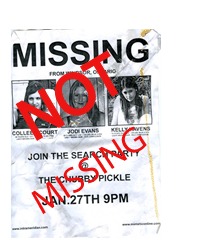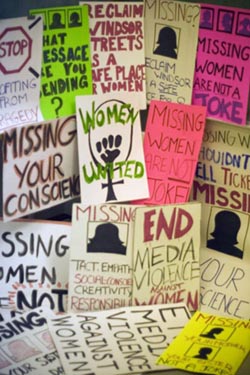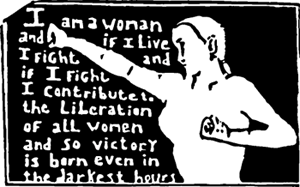Examples of Binary Opposites
Young:Old
Happy:Sad
Awake:Asleep
Up:Down
Alive:Dead
Hot:Cold
Open:Shut
White:Black
True:False
Shout:Whisper
Fast:Slow
On:Off
Smart:Stupid
Pretty:Ugly
Skinny:Fat
Tall:Short
Soft:Rough
Clean:Dirty
Chocolate:Vanilla
Rich:Poor
Treasure:Trash
New:Old
Wet:Dry
Virgin:Whore
This paper will examine the following pairs of binary opposition: Young/old, hot/cold, true/false, on/off, and clean/dirty.
Young and Old
In Western society, youth is valued above age. People spend fortunes on anti-aging creams and other products to counter the visible effects of aging. Cosmetic surgery is popular especially for women, and both sexes alter their hair colour with chemical dyes to hide the natural graying that occurs with age. Clothing for adults is marked by children’s cartoon images as if wearing clothing labeled to appear to a younger generation will help the wearer be more youthful. Ageism is prevalent in Western society: at the arbitrary age of sixty-five years old men and women are forced into retirement to clear passage for youth. It is presumed that their ability to contribute anything positive to society, i.e. the economy, is finished. This positive value attributed to youthfulness is socially constructed. Other cultures value the wisdom that comes with age. For example, some groups of Native Canadians emphasize the wisdom of the Elders and value all of the learning that can occur by paying attention to their teachings. It is also very difficult to distinguish the point where something young becomes old. As Bing and Bergvall point out, “much of our experience does not fit neatly into binary categories, and is better described as a continuum” (Courseware, 83). What is old in one context might be considered young in another. In the world of politics, some societies feel that youthfulness is a hardship because of the individual’s lack of experience. With age comes patience and a lifetime full of learning.
Hot and cold
There is no inherent badness or goodness in temperatures. Temperature relates to thermal energy (heat) and the transfer of this energy. If more heat is added to a system, the temperature rises. If heat is lost, the temperature cools. Society has added connotations to the science of temperature. There is nothing inherently good or bad about temperature. ‘Hot’ can also mean attractive, used colloquially to describe a good-looking person. This is a positive connotation. It can also refer to something that is stolen. This is negative. It is also used when describing the Christian construct of Hell – a place of punishment and therefore negative. ‘Cold’ is used to describe someone who behaves heartlessly or without feeling or sensitivity. This is a negative use of the word. These two words have been constructed to carry a range of meanings and connotations, depending on their context. The temperatures of hot and cold are subjective. In Southern Ontario, a summer day of seventy-five degrees Fahrenheit would seem cool, but seventy-five degrees in the middle of February would be much warmer than expected and so would seem hot. It is difficult to determine the point where cold becomes hot. Again, as Bing and Bergvall point out, describing temperature is relative and based on a continuum (83).
True and False
The adjectives true and false describe the accuracy of information. They provide factual information. There is nothing inherently good or bad about facts. Facts do not take on a positive or negative meaning until they are interpreted as to their impact on an individual. Truth has been constructed as something positive and False as something negative. To be a true friend is to be dependable. To be a false friend is to be untrustworthy or deceptive. Telling the truth is a valiant goal – to tell falsehoods is to be a liar. Lying, cheating and stealing are all negative behaviours in Western society.
On and Off
In an electric circuit composed of a light bulb and a battery, the light goes on if the circuit is continuous. If the circuit is broken, the light goes off. On and off describe the status of the light. There is nothing good or bad about on and off. However, in colloquial English, people use the terms ‘on’ and ‘off’ to describe status but also to rate performance. Someone who is ‘on’ has played a sport well, for example, “Her game was really on today” or “Her playing was really off this match.” ‘On’ implies a good, strong, positive performance. ‘Off’ is negative, meaning that the performance was poor. ‘Off’ can also refer to food that is spoiled and rotten, for example, “The milk has gone off” means the milk is no longer drinkable; it is wasted. This is a negative quality. These two neutral words which should refer to the status of an object have taken on positive and negative associations. If something is a ‘turn-on’ it is viewed positively as sexually stimulating. If something is a ‘turn-off’ it is negative because it is not sexually arousing or spoils a sexual atmosphere. On and off seems to logically dichotomize themselves more so at least than hot and cold or young and old. Given the example of the light bulb it appears that the bulb can be one of two choices: on or off. As it happens, inserting a variable resistor into the circuit allows the degree of light to be controlled. In fact, the light can now be dimmed or brightened to infinite levels of brilliance. The same analogy can be illustrated with a plumbing example: a faucet can be ‘on’ or ‘off’ but the desired stream of water is often somewhere in between.
Clean and Dirty
Literally, if something is clean, it is unmarked by soil. Something dirty is grimy, filthy, soiled, or muddy. Once again, there is nothing inherently good nor bad about being clean or dirty but society has attached a positive value to ‘clean’ and a negative value to ‘dirty.’ A clean conscience is a good thing: it means a person is not guilty of any wrongdoing. Clean clothes, clean start, clean slate all connote a positive and fresh image. Someone who is clean in appearance receives more respected and is usually considered a higher status person than someone who is dirty and disheveled. ‘Dirty’ is used to describe lewd or vulgar language or materials like books, videos, and magazines, usually of a sexual nature. Dirty means that outward visual perfection has been tarnished. To talk ‘dirty’ is to usual sexualized language, which in many contexts is viewed negatively as indecent or improper in many contexts. As Byng and Bergvall stress though, looking at boundaries as indistinct often more accurately reflects reality (83). A precise point does not exist where all people would agree that an article of clothing is dirty. Sometimes stains remain on freshly washed laundry. Some people would consider this laundry dirty. Other people wear the same clothing for several days and still consider it clean. Plainly clean and dirty are also subjective and are reflective of a spectrum more than they are absolutes.
Byng and Bergvall are entirely correct in encouraging us to adapt a postmodern view and look at the world in terms of a continuum, rather than attempting to categorize and dichotomize our experiences (83).
 Comments(0)
Comments(0)


